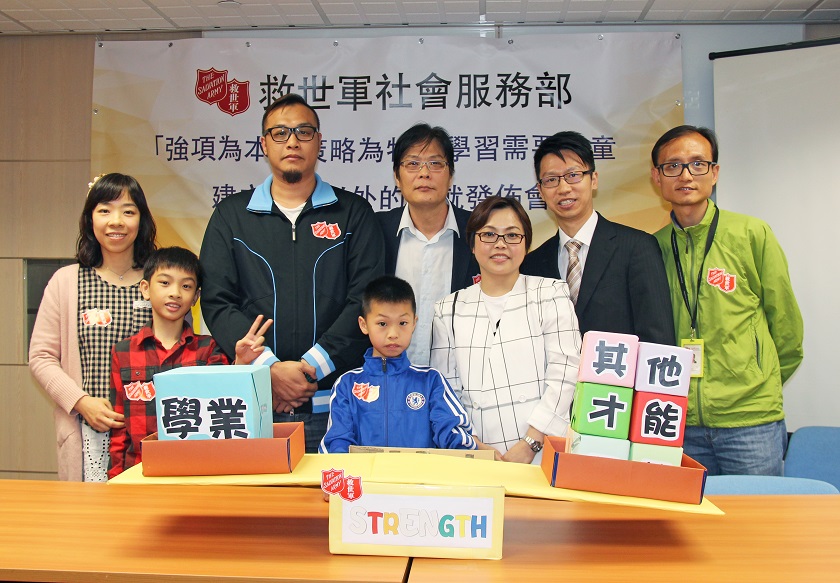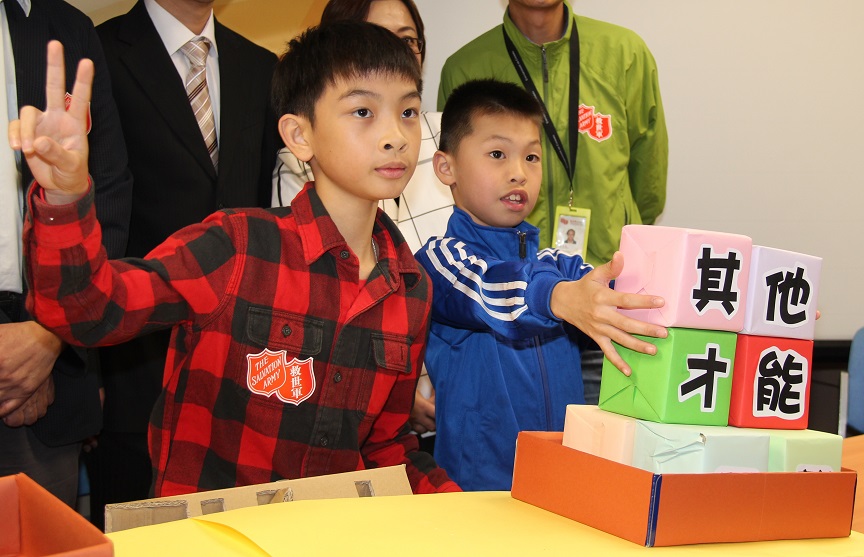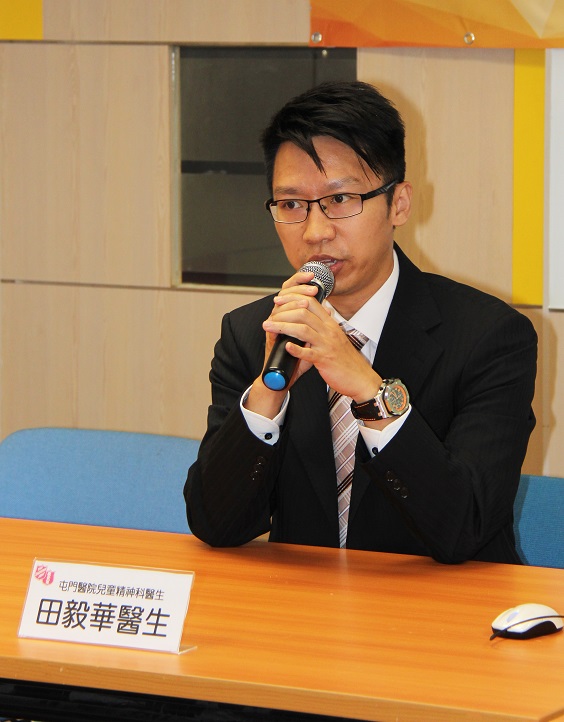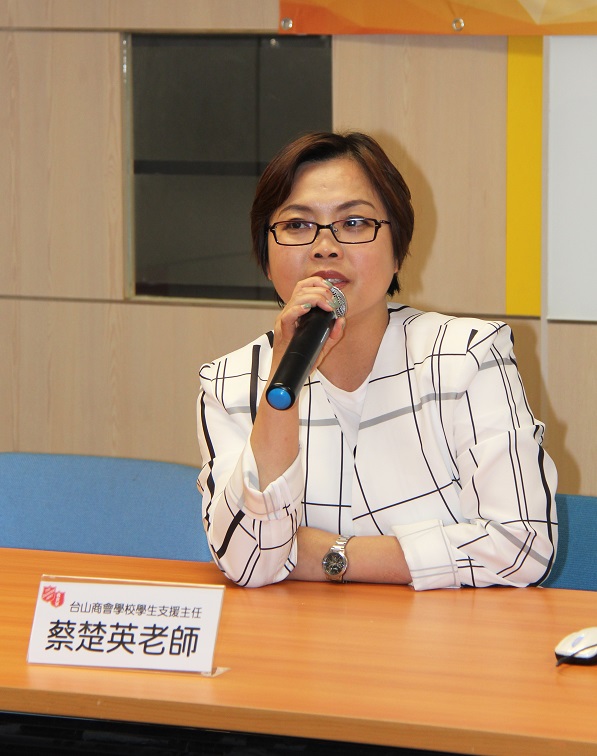What's New
The Salvation Army Strength-based Approach Help SEN Students Achieve Success beyond Studies
The society focuses mainly on students’ academic performance. Hence SEN students are often stereotyped as losers and suffer on their growth path. Therefore, The Salvation Army has tried to cultivate an environment filled with acceptance, assurance and care in community, in order to develop the children’s potential, build up their sense of accomplishment and encourage their positive behaviours.
Art is one of the most effective ways to raise the self-esteem of SEN students. The Salvation Army has used Djembe to stimulate the senses of students and to improve their attention spans. Their cooperation and social skills with other children were also strengthened.
Evaluative Result
This evaluative study consisted of two parts. The first part was a quasi-experimental pre-test and post-test control and experimental groups design. SEN students were divided into experimental and control groups based on their initial assessment. Self-administered questionnaires were responded by the social workers and parents at the beginning and the end of the Djembe classes. The experimental group consisted of 32 SEN students from four different schools and centres. 31 SEN students with a similar background formed the control group. The second part was the observation record with a content analysis assessment of all the SEN students participating in the Djembe classes in the first, middle and last sessions. Social workers used a unified record sheet to mark the frequencies of the SEN students’ behaviours shown in videos.
“Attentiveness”, “Self-esteem” and “Social Skills” are three main services outcomes and evaluation domains of the Djembe class. The survey findings suggested that after the SEN students with Attention Deficit / Hyperactivity Disorder (ADHD) joined the Djembe class, their performance in the aforementioned three domains has improved, while those with similar background who did not join the class had no improvement or even worse performance in the three domains. Based on a more in-depth statistical analysis, those joining the class increased their "Self-esteem" by 0.32, while those who did not join the class decreased their "Self-esteem" by 0.23. The difference was statistically significant (p <0.01). Moreover, those SEN students who joined the class improved their "social skills" by 0.33, and those SEN students who did not join the class diminished their "Social Skills" by 0.03, the difference was also statistical significant (p <0.01) (From table 1 to table 3).
In the "Attentiveness" assessment, an in-depth content analysis was introduced in four Djembe groups. 12 video recordings in the first, middle and last sessions were analysed. Four types of behaviour were marked case by case. There was a significant difference in the indicator: “He/She seems to have not heard when being talked to” (p<0.05) (Table 4). The result reflected that the Djembe class helped the SEN students improve their performance on “Attentiveness”, “Self-esteem” and “Social Skills”, which was initially validated after careful and scientific assessment.
Through this rigorous evaluation of the Djembe classes, The Salvation Army is more convinced that developing multiple talents is a way to provide SEN students with services in community level. It would allow them to experience accomplishments outside school, achieve success through their efforts and self-assurance by these personal successful experiences.
Conclusions and Recommendations
1. Strength-based training helps SEN students build up their self-esteem
SEN students find it difficult to overcome academic difficulties. Frustration and the social label of “a complete failure" result in their low self-esteem, lack of successful experience and low development momentum. Through the strength-based approach, we are devoted to helping SEN students develop their talent outside school, so as to rebuild their confidence and improve their abilities and attitude on attentiveness and responsibility. Putting academic competition aside, they had a positive change in re-activating their growth momentum. Parents and teachers also noticed their obvious improvements and gave different comments. We hope that SEN students would not lose their developmental opportunities merely due to less satisfactory academic performances.
2. Cultivate an environment of acceptance, autonomy, care and assurance
Social workers and instructors cultivated the above-mentioned environment for SEN students to practise and make progress. With more encouragement, the SEN students were more motivated to participate in class. They were able to learn various interpersonal skills, such as cooperation, mutual encouragement, and dispute resolution, etc. It also helped them earn positive growth experience by making more friends.
3. Provide opportunities for the public to recognise the ability of SEN students
In order to enhance public understanding of SEN students and the students’ confidence, we suggest different organisations provide performance opportunities for them. The public can rediscover SEN students’ abilities and strengths, while the students can rebuild a positive identity and values through others’ assurance and support.
4. Community-level support can help children build self-esteem and expand their interpersonal networks
Besides academic difficulties, SEN students also encounter different challenges in daily lives. They need to connect, communicate and interact with the society. However, due to the concern about the children's embarrassing behaviour in public areas, some parents would go out less with them. In this way, the children failed to gain sufficient community life experiences, resulting in more problems, such as social alienation. Yet, youth centres in the community can play a supporting role in linking different groups in the community to create a community of acceptance, autonomy, care and assurance for the growth of SEN students.
Case Sharing: Matthew, Wallace and their parents
Theme: Music enhanced kid’s motivation, self-esteem and interpersonal relationship
The boys joined different activities in the centre in 2016. On discovering their musical talent, The Salvation Army encouraged their parents to develop their potential. Despite all the worries, their parents found that their behaviour have improved after joining the Djembe class. They showed great interest in music and received appreciation for their sense of rhythm from social workers and instructors. Now they also join the Ukulele class and practise at home. Their parents feel relieved.
Professional Sharing (1): Psychiatrist – Dr Tin Ngai-wa
(Dr Tin cooperates with The Salvation Army Tuen Mun Integrated Service for Young People to hold seminars to explain the needs of SEN children, and also provides professional advice for our SEN services.)
Theme: Non-pharmaceutical treatment – how sense of accomplishment / competence helps SEN students
Besides professional treatments from occupational therapists, physical therapists and speech therapists, SEN students also need the support from their parents, teachers and social workers. Medication may assist children to improve their attention spans in a period of time. But apart from the focus on schoolwork, other aspects of personal development should also be encouraged. By finding their interests and developing their abilities, SEN students would have improvements in many other aspects.
Professional Sharing (2): Student Supporting Officer of Toi Shan Association Primary School - Ms Choi Choo Ying
Theme: Helping SEN students create a sense of accomplishment outside school and discover their unknown side
Toi Shan Association Primary School is one of the schools participating in this Djembe Study. After seeing the students’ first show, Ms Choi was deeply impressed and arranged them to perform at the school’s graduation ceremony. Ms Choi agrees that, whether at school or community centres, the strength-based model can create a sense of accomplishment for SEN students. Parents have also identified improvements of their SEN children. Ms Choi believes that the experience of collaborating with youth centres provides an alternative environment for SEN students to strengthen their attentiveness and social skills.
About Djembe Class
The Salvation Army Youth, Family and Community Services provide a range of art related supporting programmes for the students with Attention Deficit / Hyperactivity Disorder (ADHD). The Djembe class is one of the art trainings which provides a platform for the SEN students to demonstrate their talents. Through public performances, their ability can be widely recognised, so that their sense of accomplishment and self-esteem will be increased. On 20 May 2017, nearly 50 students from Tuen Mun District will have a Djembe performance at Tuen Mun Town Hall, delivering to the public a message that SEN students can shine on their own stages.











